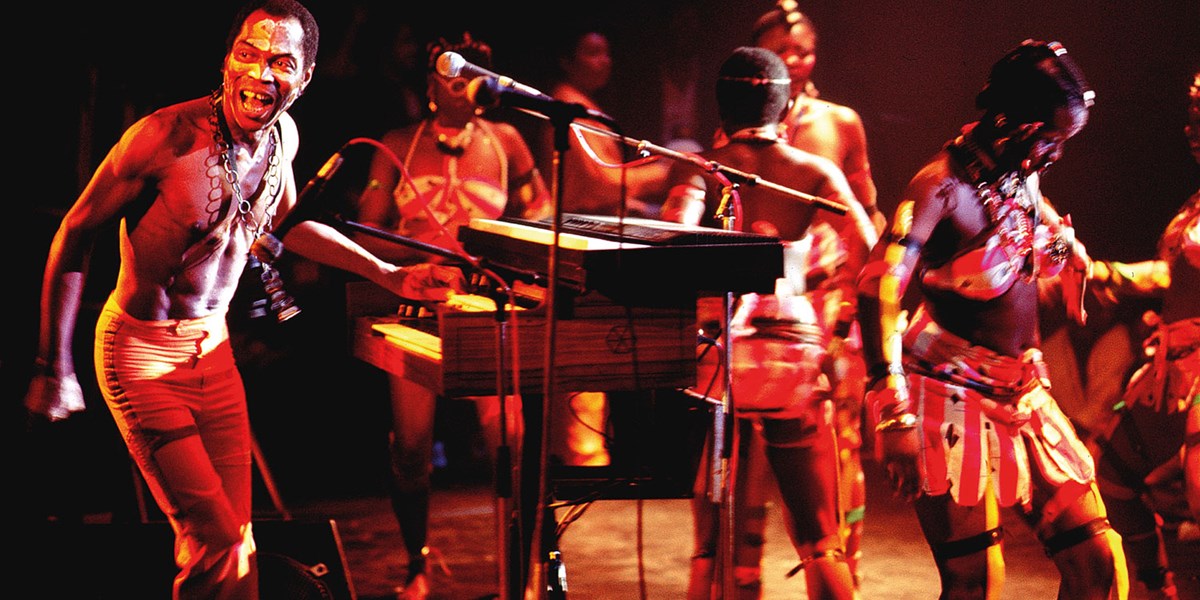Thursday, May 15, 2025
Fela Kuti: A Beginner's Guide (by Femi Kuti)
Femi Kuti discusses his father’s legacy and his life as the son of an Afrobeat legend. “He was too kind to everybody”, hears Robin Denselow

Fela Kuti live with Egypt 80

Register now to continue reading

Thanks for visiting the Songlines website, your guide to an extraordinary world of music and culture. Sign up for a free account now to enjoy:
- Free access to 2 subscriber-only articles and album reviews every month
- Unlimited access to our news and awards pages
- Our regular email newsletters

